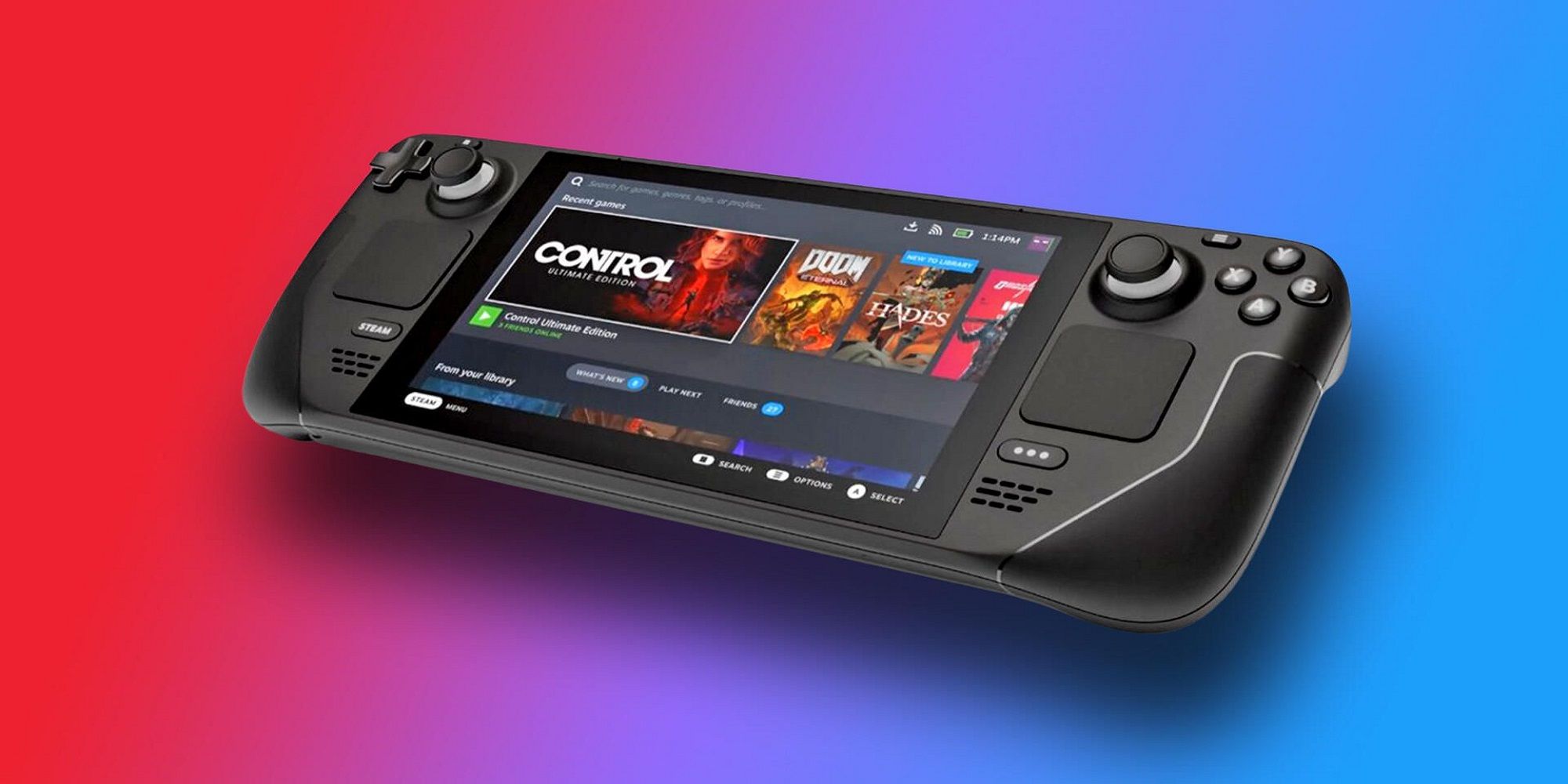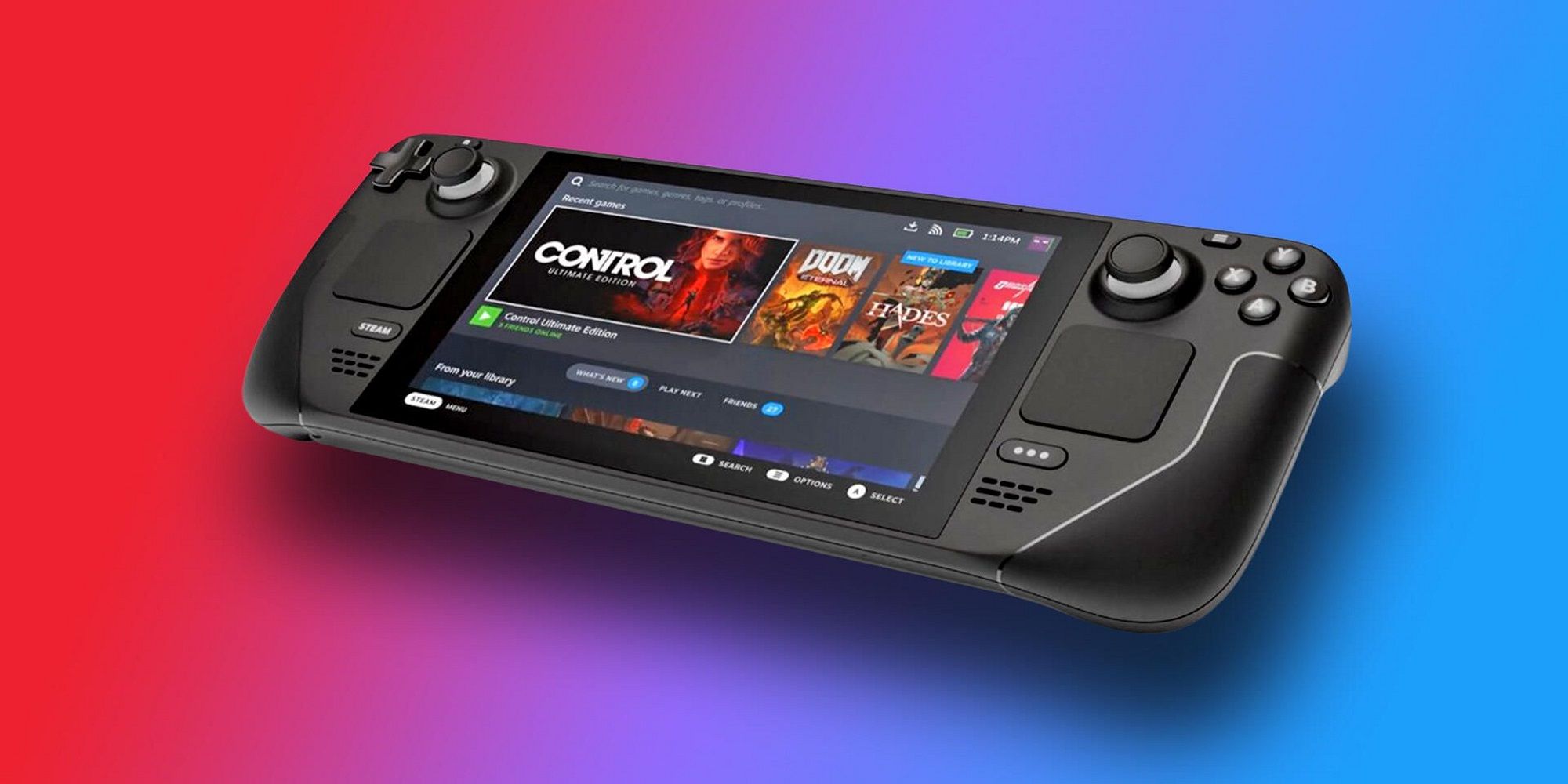
The anticipation for the Nintendo Switch Pro was at an all-time high. Rumors were spreading like we were all back at secondary school, sharing gossip about who Kerstin was snogging in the halls during class. All the while, speculation ran rampant as we tried to get to the bottom of these tall tales.
The Pro could and likely still will come, but amidst a slew of reports, insider leaks, and general tidbits shared on forums where credence is questionable at best, the OLED variant was announced. It was disappointing. Nintendo had done the bare minimum. At a $10 hike in manufacturing costs with a $50 increase in the retail price, it's no joy but all con. Nintendo's grift brings the same ol' drift, a slightly better screen, and an ethernet port – ugh. That sour aftertaste took some time to get rid of but then, out of nowhere, the Steam Deck stormed onto the scene – it's a sight for sore eyes. Nintendo might not be meeting the developing demands of the handheld market, but Valve sure is.
It's a portable gaming PC capable of natively running Jedi: Fallen Order. Seeing that much alone sold me. I remember not long ago when The Outer Worlds came out for the Switch. I was overjoyed to have Obsidian's RPG ready to play on the go, but the port was abysmal. The game's flaws were stretched out as far as the eye could see, the desolate landscape looking as though it hadn't quite rendered yet, but it had. There were simplified colors, fuzzy ground textures, low-res faces that removed so much of the personality behind each character, and a cluttered UI that felt claustrophobic on the smaller Switch screen. It did not translate. The Switch simply isn't powerful enough to serve as a console for the newest triple-A releases, but, as the Steam Deck proves, the potential for it to be is right there in waiting.
RELATED: We Can See A Glimpse Of Steam Deck’s Preorder Numbers Due To HTML Hole
Handheld devices are absolutely capable of keeping up with industry demands, but Nintendo is lagging behind. I love the Switch – it's a fantastic console and a better idea. The handheld market has long been dominated by Nintendo, with the DS being a striking example of its ingenuity, but the Switch took it a step further. It's a tablet with removable controllers that slot onto the side. It's so simple but so genius.
Nintendo had created the perfect template for handheld gaming, so much so that you can now replicate it on mobile phones and tablets, taking advantage of XCloud, which, on certain data or wi-fi packages, can compete with the Switch's capabilities. Already, mine has been made redundant by Game Pass and the like. Now, there's a potential for native Game Pass, native existing Steam libraries, and more, all on the go. Nintendo laid the groundwork, and I respect that, but the Switch is getting older and, with each year that passes, its appeal dwindles. Mine's gathering dust on its shelf until the next exclusive launches. That's all it's worth right now.

The potential behind the Steam Deck is limitless. Already, my library will be there in waiting, and what's more, with it being PC, the newest releases and older generation titles are supported by the service's very nature. Imagine an Xbox or PlayStation launching with the capability of letting you play games dating back two, three, even four generations. That alone has me excited. I can boot up Lego Indiana Jones, Metro 2033, Saints Row 2, Left 4 Dead, Grand Theft Auto: Vice City, Resident Evil: Village, and the '90s Wolfenstein 3D in one place.
Meanwhile, you can plug in any controller and get going, something I've had numerous headaches pulling off with the Switch. If it isn't first-party, enjoy the rigmarole to get it working, and even then, your selection of choices is limited. Nintendo, like Sony and Xbox, are stingy when it comes to using their platforms. Valve seems less so. The Deck is a cohesive hub for all things gaming that seems centered around the player first and foremost. That's what PC has always done best, but the problem lies with the price tag to get into it and the hassle in setting it all up. The Steam Deck minimizes those two problems while keeping these benefits intact.
The Nintendo Switch sorely lacks backward compatibility. There are some available in the form of a library of SNES games, but fans have long been begging for N64 titles. Perhaps the hardware isn't capable of that emulation just yet but look at the difference between the 3DS and the New 3DS. More options were presented by way of a leap in technology. The Deck will give us that backward compatibility, and it will let players do more with it. It has the freedom of a PC, which is so refreshing in the console market where you are bound to the tightly-knit rules of the manufacturers. If you really wanted to, you could get a Steam Deck and throw Valve's platform aside for Epic Games. That's akin to Nintendo letting you use Xbox Game Pass or XCloud from the Switch.
All in all, the Steam Deck is a promising development in the world of handheld gaming. Its better hardware means more games will be available at better visual fidelity and performance, while its use of existing Steam libraries means that many will already have plenty of games available to play from the get-go without too much hassle. Its freedom opens the door to even more titles, even more services, and even more potential beyond Valve's own realm of imagination. Condensing PC gaming into a more affordable handheld is a spark of brilliance, and while I doubt it'll dent Nintendo's sales or be a truly worthy adversary given their essential monopoly on the market, I do hope that Nintendo takes note with the Pro and learns from Valve's innovation.
Next: The Steam Deck Is Perfect For A Lapsed PC Gamer



